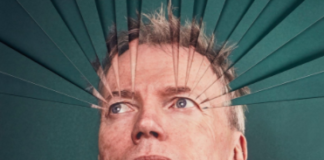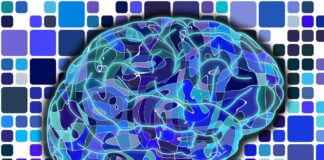Tag: philosophy and psychology
Responsibility Without Blame in Therapeutic Communities: Interview with Philosopher Hanna Pickard
Hanna Pickard on the elusive middle ground between personal responsibility and systemic factors in our understandings of addiction.
Can a Conceptual Competence Curriculum Bring Humility to Psychiatry?
Training for conceptual competence in psychiatry provides a new way forward to address theoretical and philosophical issues in mental health research and practice.
Building a Culture of Mental Well-Being
We used to turn to family, community, and religious/philosophical teachings to ease our despair. Now, one is expected to turn to psychiatrists and therapists. With depression rates rising throughout the world, modern society must find a way to enhance the individual’s capacity to build a meaningful, satisfying, and self-actualized life.
On Human Nature and Its Implications for the Mind-Body Problem
Peter Hacker's magnum opus explores what it means to be human via an analysis of the language we use. Through disclosing the conceptual framework within which we think, act and come to know things, our deep and implicit understanding of ourselves and our world is revealed.
The Mind-Expanding Ideas of Andy Clark
In this piece for The New Yorker, Larissa MacFarquhar profiles the philosopher and cognitive scientist Andy Clark, whose work argues that our minds are inseparable...
The Usefulness of Dread
From Aeon: Although anxiety may be a major source of discomfort and suffering, it can also play an important role in the development of our...
Nietzsche on Depression and the Rehabilitation of Hope
In this piece for Brain Pickings, Maria Popova discusses Friedrich Nietzsche's writings and perspectives on the struggle of depression and the possibility of hope.
"Nietzsche writes...
The Frantz Fanon’s Foundation 2nd Rencontres
From the Blog of the APA: This past December, the Frantz Fanon Foundation celebrated its 10th anniversary in the "2nd Rencontres" of the Foundation. The...
Underestimating Social Determinants of Health Linked to Right-Wing Authoritarianism
Social determinants have been seen to have an equal, if not greater, influence on health as individual behaviors, yet this evidence is largely ignored. Researchers investigate why this is the case.
Video: Alain Badiou and Michel Foucault
From Verso: A televised 1965 discussion between Alain Badiou and Michel Foucault, under the heading "Philosophy and Psychology," is available to stream in three parts.
Videos →
Félix Guattari: Origins in Trotskyism and Psychoanalysis
In this piece for Non.copyriot.com, Andrew Ryder discusses the life and ideas of the psychotherapist, philosopher, and activist Félix Guattari, whose work united many of...
Consciousness Began When the Gods Stopped Speaking
In this piece for Nautilus, Veronique Greenwood discusses the legacy of Julian Jaynes, a psychologist best known for theorizing that consciousness was a cultural development resulting...
How Stoicism can Help us Deal With Depression
From Medical Xpress: Stoicism, an ancient philosophy based on the idea that the goal of life is to live in agreement with nature, can be...
It’s Easy to Get Caught Up in Constructing Our Selves
In this video for Aeon, clinical psychologist Daniel Brown discusses the ways that the construction of a fixed selfhood can limit the possibilities of our...
Knowledge of Mental States and Behaviour: Insights From Heidegger and Others
Applying the methods of natural science to human activity is sometimes necessary, but it cannot enlighten us about the nature of that activity or the reasons that motivate and sustain it. Instead, insights must come from our own and others’ experiences.
How Should We Think About Mental States? The Contribution of Wittgenstein
The important point that Wittgenstein makes is that mental states, including mental disorders like depression or psychosis, are not just private events — we understand them through the public expressions by which they are manifested.
There is No Such Thing as the True Self, but it’s...
From The British Psychological Society: The idea that each of us has a true or authentic self is a very common belief in many different...
More to Happiness Than Feeling Good, Study Finds
Cross-cultural data suggest that happiness involves feeling the emotions one deems as right, in accordance with personal and cultural values.
Moral Enhancement Technologies are Reportedly Ineffective, Impractical, and Unwise
A new paper published in Bioethics assesses proposals to “enhance morality” through neuropharmacological and neurotechnological interventions.
What Lurks Beneath
In this piece for Aeon, Antonio Melechi explores various historical and contemporary perspectives on the nature and purpose of the unconscious mind.
Researchers Make a Case for a “Theory of Nothing” in Psychology
What meaning do psychological constructs really hold, and how are they operationalized and statistically modeled within psychology research?
The Sane Society: The Great Philosopher Erich Fromm
According to philosopher Erich Fromm, the more technologically and intellectually advanced a society becomes, the more the society risks collective insanity, subjecting itself to...
Call For Abstracts: Philosophical Perspectives on Critical Psychiatry
The Association for Advancement in Philosophy and Psychiatry is issuing a call for abstracts, with a particular interest in submissions from service users. The...
“Philosophy versus Neuroscience on the Question of Free Will”
For Scientific American, philosopher Hanoch Ben-Yami critiques the dismissal of free will by neuroscientists. “Although we have learned a lot from cognitive psychology and...
“Is Philosophy Therapy, or Simply a Search for Truth?”
For Aeon, Jules Evans and Nigel Warburton discuss the therapeutic aspects of philosophy. Evans argues that “it wouldn’t be appropriate for a therapist to...































